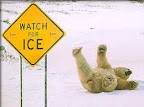23 Years Since The New York Times Lamented ‘Cold Season Loses Its Chill’ in U.S.
…Flashback 1974: CIA Blamed Polar Vortex Dips On Arctic Cooling
…Flashback 1972: CRU Chief Hubert Lamb of U. of East Anglia Said in an Associated Press article That Earth Would Definitely Cool Over The Next Two Centuries
…Flashback 1975 New York Times: Climate Experts Said That Jumbo Jets Would Cool The Planet And Produce Global Famine
…Former NASA scientist James Hansen in 1986 Warned of Up to Five degrees F warming by 2010
…The Past Cannot Be Erased: Treasure Trove Of 1970s ‘Global Cooling’ Articles Uncovered — ‘Popularity of scientists predicting an ice age is very clear up to 1979’

A NEW TREASURE TROVE OF 1970S “GLOBAL COOLING” ARTICLES
Italian newspaper “La Stampa” has just put online its 1867-today archive (yes, it IS in Italian). What better chance (well, for me at least…) to explore the evolution of “global cooling” thinking in the 1970s beyond the usual English-speaking newsmedia? With the added bonus of plenty of names and other key words to use as…keywords for further research.
Very briefly: in the 15 articles I have found so far:
- the popularity of scientists predicting an ice age is very clear up to the Feb 1979 meeting of the World Meteorological Organization
- “upcoming ice age” is the meme du jour up to 1985 at least
- there is a warmist slant in 1990 but strangely, the arguments of discussion are more or less the same still central to the debate in 2010
This collection strongly indicates that in Italy, like elsewhere, the average reader of newspapers would have had all the reasons to believe in a “global cooling consensus” for much of the 1970’s and even later.
======
Here’s the article list:
1. June 22, 1976 (n.145, p.14): “Entro cento anni avremo una era glaciale” – “Within a hundred years we’ll get an ice age” by Umberto Oddone
- Mentions Reid Bryson
- “not all scientists agree”
- a Cesare Emiliani from the University of Miami investigates 700,000 years of sea-shells Oxygen isotopes
- icebreaker “Glacier” gets “stuck in the Atlantic”
2. June 27, 1976 (n.150, p.9): “Tra ghiacci e siccita’” – “Between ice and drought” by Umberto Oddone
- Earth is “having a fever”
- Bryson again
- Cesare Emiliani and sea-shells analysis, again
3. Oct 19, 1976 (n.229, p.21): “Fra pochi anni inverni freddissimi – In Siberia spariranno i cereali?” – “Very cold winters within few years – will grains disappear from Siberia?” by Bruno Ghibaudi
- 30 years of cooling trend
- Not a new ice age but hard consequences expected for the USSR
- Mentions Prok Nikola Volkov, Director, Arctic and Antarctic Research Institute, Leningrad
- Kara Sea temperature having dropped from -10C to -13C in 30 years
- Nearby polar seas, decreases of 1 or 2C
- Sea lanes to Murmansk and Arkangelsk closed by the ice in the early 1900’s, open in 1941-45, now 60% closed again
- Two teams of French scientists complete research in the Antarctic.
- Oxygen-isotope analysis indicates climate cycles, with a new cold peak
